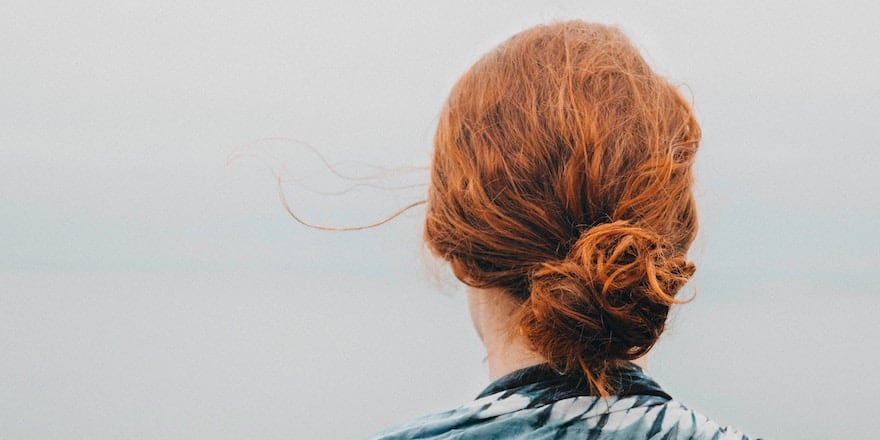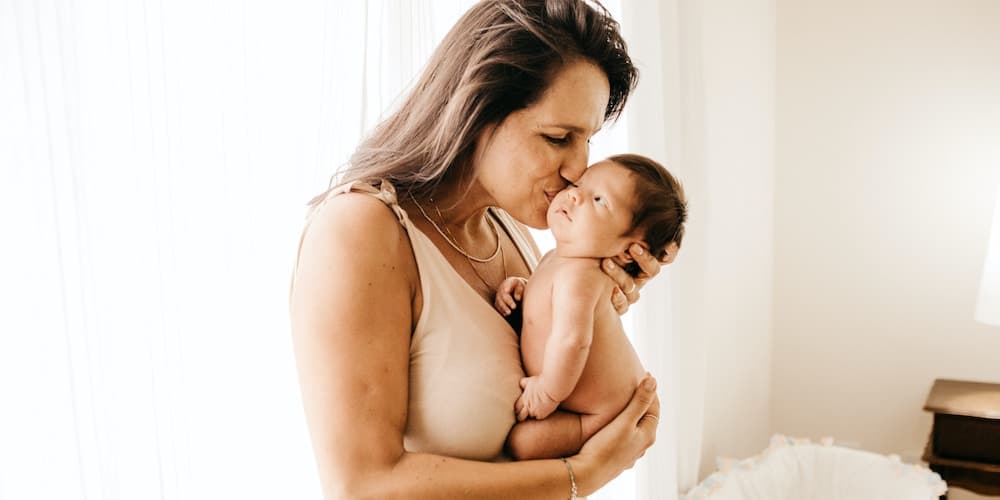Finding a few hairs on your pillow? Do they come out in clumps during shampooing or brushing? Don’t worry, hair loss after your baby’s birth is normal and quite common!
During pregnancy, estrogen levels rise to stimulate the body and provide nutrients and oxygen to the fetus, giving you the famous pregnancy glow, accompanied by a fabulous mane and radiant complexion.
These hormones extend the life of the hair and slow down its shedding.
Yes, but let’s go further! At the baby’s birth, estrogen production decreases significantly. About 3 months after giving birth, the hair loss process returns to normal.
Result? Your body catches up, and you lose your pregnancy hair in addition to the normal physiological shedding. This is known as postpartum alopecia. It’s no wonder they sometimes fall out in handfuls!
Read also | The best dietary supplements against hair loss according to a pharmacist
How long does hair loss last after childbirth?
Factors beyond hormonal upheaval
The hormonal upheaval is not the only explanation:
- in postpartum, you could be deficient in nutrients: vitamins, zinc, iron, and other minerals may be lacking. Their presence is necessary for the health of the hair strand
- fatigue and stress: the new workload that a baby represents, the change in habits, and the decreased sleep time are all factors that can impact the beauty of your hair.
From a few weeks to a few months
According to my research on postpartum alopecia, it generally lasts from a few weeks to a few months, starting the third month after childbirth.
Most commonly, it resolves on its own around the 6th month after the baby is born, but it can sometimes last longer.
It takes about a year to regain your pre-pregnancy hair.
Good to know for new moms, breastfeeding tends to delay hair loss because estrogen production is maintained during this period!
If this alopecia lasts too long (< 5 months) or if hair loss is too significant, I advise consulting with a healthcare professional to rule out any other underlying causes.
As hair loss is primarily hormonal, it cannot be entirely avoided. However, certain good habits can be implemented to help you limit this shedding.

How to combat this hair loss?
A good diet before and after childbirth
To reduce this significant loss, let me tell you, it all starts on your plate.
Proteins, omega-3s, fruits, and vegetables are your allies in maintaining your hair. Favor red meats, legumes, eggs, green vegetables, and fish to stock up on iron, zinc, good fatty acids, and B-group vitamins.
These micronutrients are essential for the health of the hair strand and to slow down hair loss.
And no need to wait until your little one is born to adopt new habits! A good diet is necessary throughout pregnancy.
Taking dietary supplements
Diet alone is sometimes not enough depending on the deficiency faced. Certain dietary supplements can help you regain healthy, beautiful hair:
- iron and zinc supplements, two minerals that contribute to hair health
- B-group vitamins and sulphur amino acids (cysteine, methionine) which help boost keratin production
- brewer’s yeast, rich in vitamins and trace elements
However, be careful if you are breastfeeding! Before starting any supplement regimen, make sure they are compatible with breastfeeding by consulting your primary care doctor.
Targeted local treatments
Shampoos with mild surfactants and a slightly acidic pH, masks with targeted actives (keratin, collagen, biotin) to combat hair loss, as well as certain vegetable oils, can strengthen your hair strand.
You can, for example, dilute an essential oil of rosemary, lavender, atlas cedar, or peppermint in jojoba or sweet almond oil to stimulate blood circulation and promote hair growth.
Essential oils should be used with caution, seek advice from a professional if in doubt, or if you are breastfeeding.
For greater effectiveness, feel free to practice scalp massages to stimulate blood microcirculation, which is beneficial for hair growth.
Gentle actions for your hair
To avoid accelerating hair loss after your delivery, I advise you to treat them gently:
- avoid hair extensions, excessively tight braids, aggressive or too frequent brushing, or hairstyles that pull your hair too much: these actions tend to increase hair loss
- also limit heat: use of flat irons, curling irons, and hairdryers at excessively high temperatures
And if this hair loss truly affects your mood, a new haircut might help you put things into perspective and appreciate this new chapter of your life!



